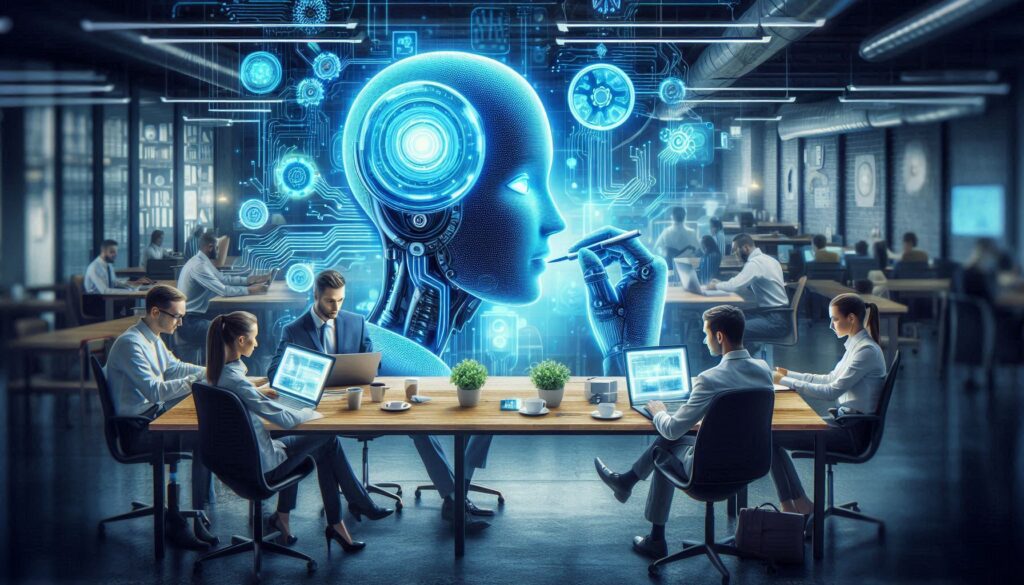
Molly S.
Business-savvy enthusiast with a mindset on growth and advocate for mental health!
Updated by Molly S. on 12/9/24
Artificial intelligence (AI) is no longer a futuristic concept—it’s a transformative force reshaping modern workplaces. From automating repetitive tasks to enhancing decision-making and improving employee experiences, AI is driving unprecedented changes across industries. Here’s a closer look at how AI is revolutionizing the way we work and what it means for the future of the workplace.
1. Automating Routine Tasks
One of AI’s most immediate impacts is in automating repetitive and time-consuming tasks. Whether it’s data entry, scheduling, or customer service through chatbots, AI frees employees to focus on higher-value, creative, and strategic work. This shift not only improves efficiency but also enhances job satisfaction.
2. Enhancing Decision-Making
AI-driven analytics tools enable businesses to make data-driven decisions with speed and precision. By analyzing vast amounts of data, AI uncovers trends, predicts outcomes, and offers actionable insights that were previously unattainable. This empowers leaders to make smarter, more informed decisions.
3. Personalizing Employee Experiences
AI is transforming HR and workplace management by personalizing employee experiences. From AI-powered recruitment tools that match candidates with roles to virtual assistants that guide onboarding, technology is making workplaces more inclusive and adaptive to individual needs.
4. Redefining Collaboration
Remote and hybrid work has become the norm, and AI plays a crucial role in facilitating seamless collaboration. Tools like real-time language translation, smart meeting summaries, and AI-assisted project management streamline communication and keep teams aligned, no matter where they’re located.
5. Upskilling and Learning
AI-driven learning platforms are personalizing professional development by tailoring content to individual skill gaps and career goals. Employees can access on-demand training, interactive simulations, and AI-powered feedback, making learning more effective and accessible.
6. Improving Customer Interactions
From chatbots to sentiment analysis, AI is elevating customer service. AI tools provide quick, accurate responses to customer inquiries and even predict customer needs, enabling businesses to offer proactive, personalized solutions.
7. Boosting Cybersecurity
As workplaces adopt more digital tools, cybersecurity is paramount. AI is revolutionizing threat detection by analyzing patterns and identifying anomalies in real time. This proactive approach significantly reduces the risk of breaches and enhances organizational security.
8. Shaping the Future of Jobs
While AI automates certain roles, it also creates new opportunities. The rise of AI emphasizes the importance of skills like creativity, critical thinking, and emotional intelligence—qualities that complement, rather than compete with, AI capabilities.
Challenges and Considerations
Despite its advantages, AI adoption comes with challenges. Concerns about job displacement, data privacy, and ethical AI use need to be addressed. Companies must implement AI responsibly, ensuring transparency, fairness, and inclusivity.
Final Thoughts
AI is not just a tool—it’s a partner in reshaping the modern workplace. By embracing AI strategically and ethically, organizations can unlock new levels of efficiency, innovation, and employee satisfaction.



